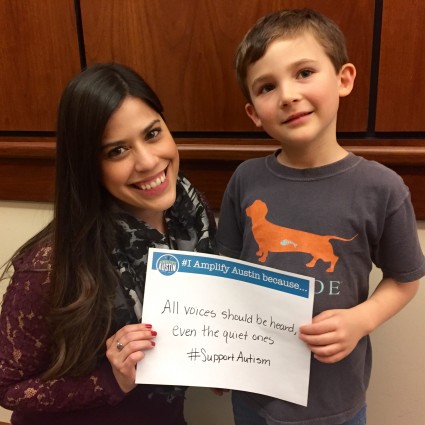News and Notes from The Johnson Center
The Health Benefits of Generosity
JCCHD | Tue, March 08, 2016 |Mahatma Gandhi once said, “The best way to find yourself is to lose yourself in the service of others.” One way to serve others is through generosity. Generosity is defined as the quality of being kind, understanding, unselfish, showing concern for others, or freely giving money, time, or other valuable things without expecting anything in return. Examples of this include making a charitable donation, spending time volunteering, or helping a friend with a task. Generosity not only has a positive impact on the person or organization one is helping, but it also has great health benefits for the giver.
Generosity can help lower your blood pressure, reduce risk of chronic disease, and reduce stress.
Chronic increased stress levels can lead to hypertension, or high blood pressure, and can contribute to chronic illnesses such as cardiovascular disease. But giving can help reduce stress, thus lowering your blood pressure. A 2013 study published in the journal Psychology and Aging found that volunteering regularly lowered the risk of hypertension in adults aged 51 – 91 years by forty percent. Another study published in the journal JAMA Pediatrics in 2013 found that volunteering lowered cholesterol and inflammation in adolescents. A group of high school sophomores were divided into two groups: one that volunteered for an hour each week for ten weeks, and one that did not volunteer at all. The students in the volunteering group were found to have lower cholesterol and inflammation at the end of the ten-week period than the students who did not volunteer. Thus, being generous can help lower hypertension and cortisol levels (a stress hormone). An article published in 2013 in the American Journal of Public Health also found that people who helped others were better protected against the negative impacts of stress.
Giving can boost your mood and make you happy!
Studies have shown that being generous can make you feel happy and increase life satisfaction. A 2008 study published in Science found that giving can make you happier. Forty-six randomly selected participants were given either $5 or $20 and assigned to spend the money on either themselves in the form of a desired item, expense, or bill, or on others, as a gift or charitable donation. They were called back in the evening and asked how they felt after spending the money as assigned. Those who spent the money on others felt much happier than those who spent it for personal use. Another study published in the Journal of Personality and Social Psychology in 2010 found that people felt better when they helped someone. One hundred thirty-eight college students were asked to keep a daily diary for two weeks reporting whether they had helped someone and how they felt. Most of them felt much better on days when they helped another person and/or did something for a good cause.
Generosity can help you make a social connection.
Helping others can help you make social connections and positively impact your relationships with people. You have surely heard the saying, “What goes around comes around.” This is absolutely true when it comes to generosity! Being a recipient of generosity inspires that recipient to give back to others, whether it be to the giver who directly helped them or to another individual or group. Giving builds a sense of trust and reliability, which leads to more social cooperation and connections. People are perceived as more positive and compassionate, which helps them feel closer to one another, thus establishing firm social connections.
Giving evokes gratitude.
Gratitude boosts positivity and your overall well-being, and giving can instill gratitude in a recipient. People who express gratitude are more likely to be optimistic and have a better outlook on life. Expressing gratitude to those around you or in your life can also promote healthy relationships and sense of connection. A way of expressing gratitude is to keep a daily gratitude journal, in which you write down everything you are grateful for each night before bed. This can bring a sense of content, satisfaction, and happiness.

Generosity can lead to a chain of people “paying it forward.” Paying a good deed forward entails doing something or giving somebody something without expecting anything in return. The recipient of the good deed is then inspired to do something kind for another person. There have been heartwarming news stories or social media posts about people paying it forward, such as paying for the order of the person in line behind them at a coffee shop drive-through, which ultimately inspires that person to pay for the following person’s drink and so forth. Studies show that generosity is paid forward to the third degree. For example, one person may give $20 to another person, who may give $10 to another individual, who may give $5 to another. Seeing others give or be generous is likely to cause somebody to also be generous.
It is clear to see that generosity is good not only for others, but especially for yourself. Being generous might be the most selfish thing you can do!
Feeling generous? Support The Johnson Center campaign at Amplify Austin and help support programs for people with autism and their families!



